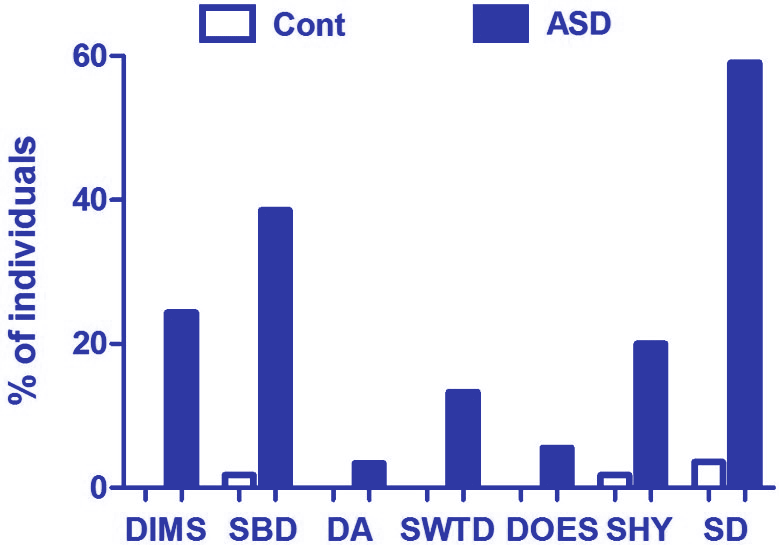Research indicates a high prevalence of sleep problems in general, but autistic people seem to be significantly more affected by sleep problems.
Personally, my main sleep problem is sunrise, which keeps interrupting my sleep every day of the week. I try to work around that by sleeping in the hours that the Sun is not apparently present, but every morning we are incongruous once again!
Research from 2005
A study from 2005 indicates the following prevalence rates of sleep problems:[1]A survey of sleep problems in autism, Asperger’s disorder and typically developing children
- Neurotypical: 50%
- Autism: 73%
- Asperger syndrome: 73%
So based on this study, no difference was found between different types of autism in terms of prevalence, but both autism groups were 46% more affected by sleep problems than neurotypicals (NT).
No significant differences were found on severity or type of sleep problem between any of the groups (including NTs), however.
Research from 2015
A study from 2015 that looked at the influence of sleep disorders on the behavior of autistic individuals found the following percentages of individuals experiencing sleep disturbances:[2]Influence of sleep disorders on the behavior of individuals with autism spectrum disorder

The diagram shows the following sub-items of sleep disturbances:
- DIMS — Disorders of initiating and maintaining sleep
- SBD — Sleep-breathing disorders
- DA — Disorders of arousal
- SWTD — Sleep-wake transition disorders
- DOES — Disorders of excessive somnolence
- SHY — Sleep hyperhydrosis
Research from 2017
A study from 2017 that looked at sleep problems in autistic children and children with ADHD indicated:[3]Sleep, chronotype, and sleep hygiene in children with attention-deficit/hyperactivity disorder, autism spectrum disorder, and controls
- NT: 25.1%
- ASD: 64.7%
- ADHD: 63.6%
Here we see lower prevalence rates on average, but also a much more significant difference in prevalence between autism and neurotypicals—in fact, an incredible 157.8% difference!
The research also indicated shorter sleep durations in autistic people compared to neurotypicals.
Comments
Let us know what you think!